Are you looking for a dentist in Barcelona to treat your gum problems?
Gum disease is extremely common and is the main cause of tooth decay in adults. To avoid these, it is advisable to take care of your gums through good oral hygiene and regular check-ups with your dentist.
However, if you experience bleeding when brushing, red and swollen gums, or gum pain, don't wait to make an appointment with a specialist. Gum disease should be treated promptly to avoid complications.
What is gum disease?
Gum disease is an inflammatory disease, characterised by the destruction of the supporting tissue around one or more teeth. This inflammation of the gums is caused in particular by the accumulation of dental plaque and tartar. These diseases can affect the bone that supports the teeth and eventually lead to tooth loss.
Gum disease mainly affects adults. If diagnosed early, it can be prevented and treated.
Here are the main symptoms that should lead you to seek medical attention:
- Bleeding gums with each brushing or flossing
- Change in gum colour
- Shiny, swollen or painful gums
- Persistent bad breath
- A metallic taste in the mouth
Fast track your treatment
To book an appointment or speak with one of our friendly team, please get in touch using the options below
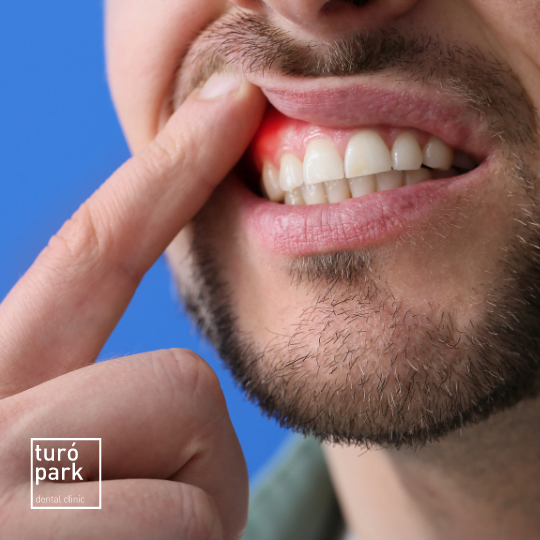
Gum problems: risk factors
In addition to poor dental hygiene, which is the main cause of periodontal problems, other factors can also cause periodontal disease.
- Tobacco, alcohol and an unbalanced diet. By promoting the accumulation of plaque, they increase the risk of inflammation.
- Hormonal changes during pregnancy: the many hormonal changes during pregnancy increase the sensitivity of the gums to the enzymes released by plaque bacteria.
- Not enough solid food. The absence of chewing limits muscle activity and weakens the supporting tissues.
- Reduced salivary flow. Age, but also the use of certain medications (antidepressants,) or diseases that affect the salivary glands can lead to dry mouth which complicates the removal of dental plaque.
- Diabetes.
What are the main gum diseases?
This is an inflammation of the gums. It results in red, swollen gums that bleed easily. It is linked to the presence of dental plaque made up of bacteria, food debris, saliva and tartar.
Very commonly, it starts locally between two teeth and eventually spreads and becomes generalized if left untreated. It then turns into periodontitis, a much more serious condition.

What are the main treatments for gum disease?
Restoring good oral hygiene
The first thing to do is to restore good dental hygiene and your dentist is there to guide you and rectify your bad habits. There are several things you can do to slow down the disease and avoid it. As we said before, periodontitis can be avoided most of the time thanks to a rigorous oral hygiene which includes :
- Using a toothbrush, manual or electric, with soft bristles, at least twice a day.
- The use of dental floss and interdental brushes to ensure the effective removal of plaque.
- Choosing a good toothpaste with antibacterial action.
- Rinsing.
A complete cleaning of the mouth: scaling and surfacing
Although periodontitis is caused by bacteria, antibiotics are not always necessary to treat it. Instead, your dentist will perform a thorough cleaning of your teeth, their roots and gums.
Surfacing is a technical procedure carried out under local anaesthetic using manual curettes or ultrasound equipment. It aims to remove subgingival tartar, in the area where the bone tissue has been destroyed, and to dislodge the bacteria clinging to the root of the tooth exposed as a result of bone loss.
To avoid the return of periodontitis, it is important to carry out regular dental cleanings. At Turó Park Clinics in Barcelona, our dentists are here to inform you about the intervals between sessions and to ensure that you receive the best possible cleanings.
Surgical treatment
In 5-10% of cases, scaling or root planing proves insufficient and surgery may be required to thoroughly clean the root of the tooth and, if possible, recreate supporting tissue. The dental surgeon must then open the gum to clean hard-to-reach areas and add bone if the loss is significant. The operation is performed under local anaesthetic.
In the most severe cases of periodontal disease, a gum graft may be considered to restore the gum tissue and prevent the teeth from receding. A bone graft can also be used to rebuild the bone that has been destroyed.
When it comes to dental health, prevention is better than cure!
Our English-speaking dentists will give you personal advice on how to prevent gum disease.
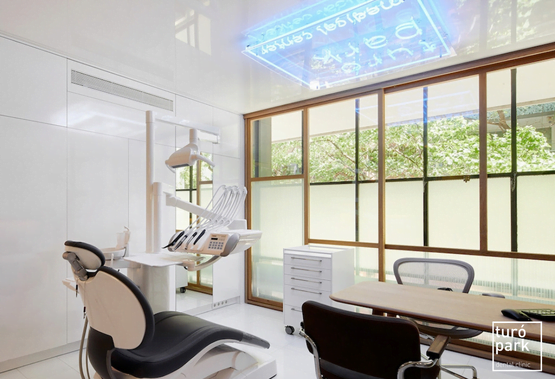
Our English-speaking dentists


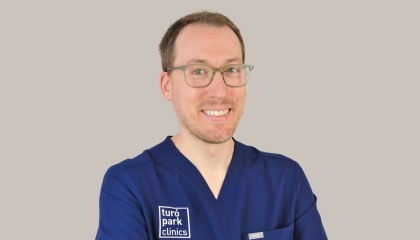






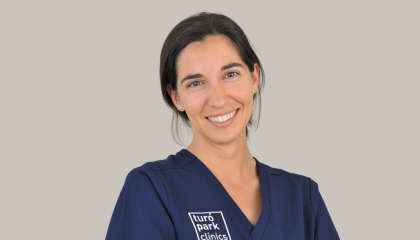

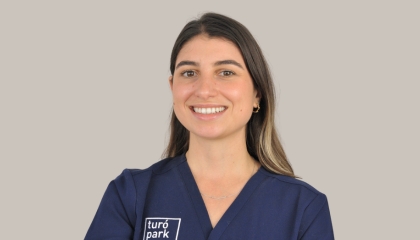




They talk about us
Our answers to the most common questions about gum health
What are the signs of gum disease?
Is daily mouthwash good for the gums?
What food supplements should I take to care for my gums?
Dental societies and organisations










Have a look to the financing options
Don't worry, we take care of everything!